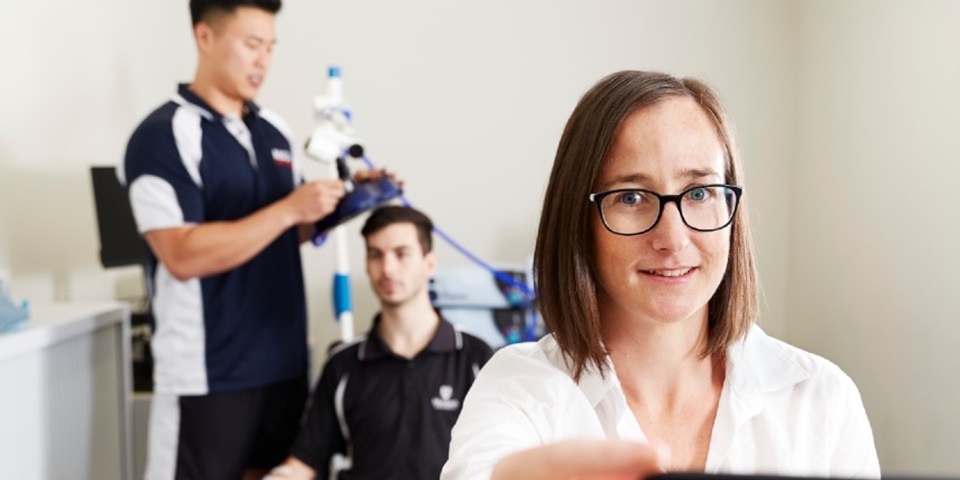News
Unravelling the impact of exercise and trauma on our brains

Researchers at the Centre for Healthy Ageing have won funding to better understand the impact of exercise and physical injury on the way our brains work.
Dr Belinda Brown and Dr Ann-Maree Vallence, from Murdoch’s Centre for Healthy Ageing, have received Merit Award funding from the Western Australian Department of Health to further their research into cognitive function.
Dr Brown’s programme of research is focussed on reducing dementia risk, specifically by identifying the types of physical activity and exercise that provide the greatest benefit to the brain.
This new research builds on her body of research evaluating the impact of high-intensity exercise on cognitive function.
"Previous research failed to consistently demonstrate a positive link between exercise and cognition, and this could be due to individual differences in brain changes following exercise.
“Our testing reinforced this. We found that individuals that had the greatest increases in fitness had the biggest improvements in cognition. We also found that some genetic factors were important for predicting which individuals would experience brain changes in response to high-intensity exercise,” she said.
Dr Brown’s initial study was conducted on 99 healthy adults aged between the ages of 60 and 80 years, who were divided into three groups. The first group was given a high-intensity exercise program, the second group a moderate-intensity program and the third group was a control group with no exercise.
“The two exercise groups trained twice a week for a six-month period on a stationary exercise bike. Their cognitive function was measured with the assistance of the Australian Alzheimer’s Research Foundation, using a series of neuropsychological tests, which were administered at the commencement of the study and then again following the completion of the intervention,” said Dr Brown.
“The high-intensity intervention contributed to the greatest increases in fitness, but we didn’t see a direct effect of exercise on cognition. There was however, an association between changes in cognition and cardiorespiratory fitness, and our data also indicates that genetics may moderate the relationship between fitness and cognitive change.
“Our work suggests that an individualised approach to exercise programming may be important for improving brain health.Future research will be undertaken to confirm our findings, as well as evaluate a larger range of genetic factors that may influence the relationship between exercise and brain health," she added.
Dr Brown’s research programme involves collaborations with researchers at The University of Pittsburgh, University of Melbourne, CSIRO, and Edith Cowan University.
Dr Vallence also won funding for her project focused on understanding and treating factors that lead to long-term functional impairment and increased chronic disease in burn injury survivors across their lives.
Pain and peripheral injury induce changes in the brain that can be functionally beneficial or maladaptive, yet we know little about brain changes following burn injury.
“This project will identify the mechanisms and functional impact of neural plasticity after burn injury, and test the efficacy of a neural intervention to reduce pain and improve functional recovery following burn injury,” said Dr Vallence.
The project, led by Dr Vallence at Murdoch University, includes collaborations with UWA and the University of Notre Dame as well as the Fiona Stanley Hospital.
The two projects continue the mission of the Centre for Healthy Ageing to improve the quality of life and health-span of older Australians.
Find out more on research at the Health Futures Institute.